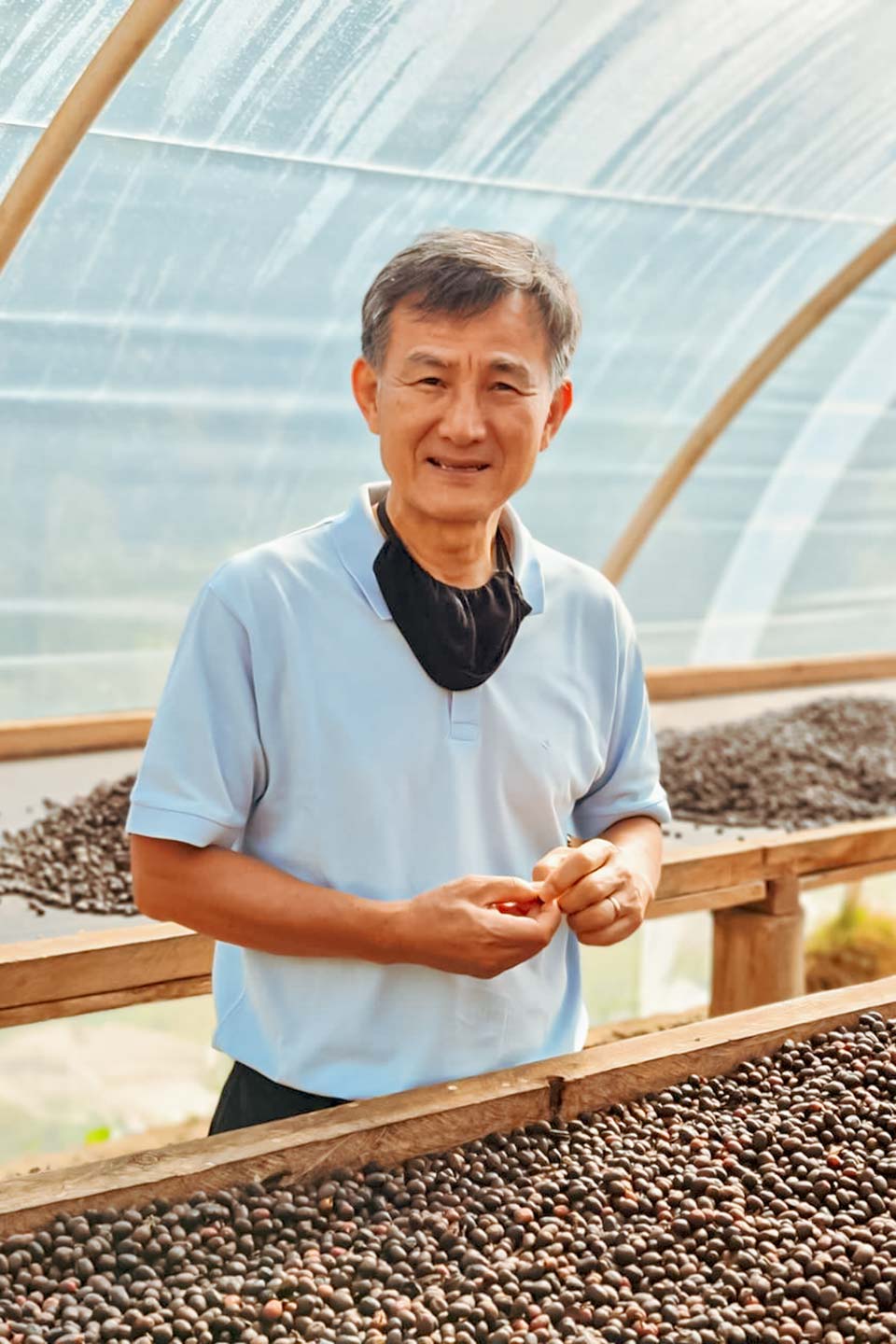
One Farmer’s Quest for Hope and Fairness for All
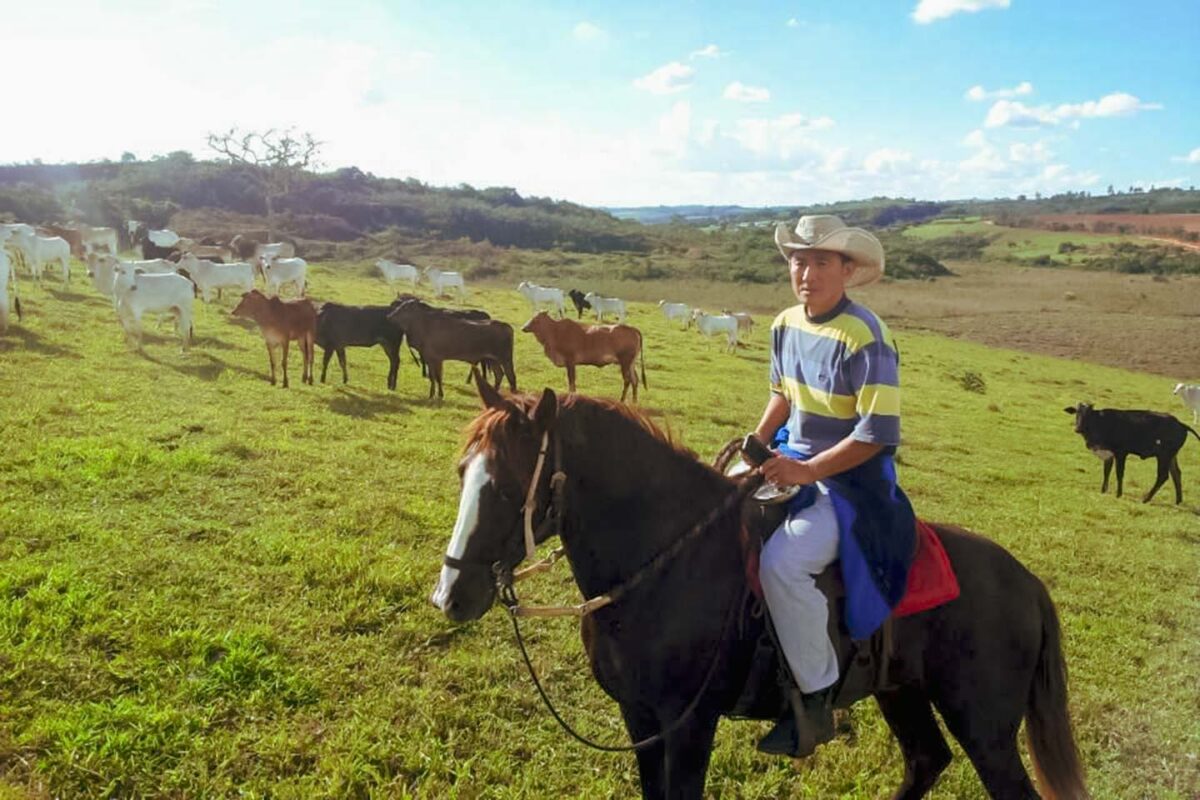
Um Coffee is a Brazilian coffee producer that grows 46 varieties of Arabica coffee on their farms in southern Minas Gerais and Espirito Santo, two of Brazil’s largest coffee-producing regions. They have built a loyal European customer base by not only exporting their coffee, but also by hosting exhibitions and opening their own coffee shop chain in Sao Paulo, all in an effort to form direct relationships with their clients. Currently, 80% of their coffee is specialty-grade.
The founder of Um Coffee, Stefano Um, is a South Korean immigrant who moved to Brazil at 12 years old in 1976. He began his career in electronics, but eventually found his way to the world of coffee in the late 1990’s. And decades later, he is determined to make it his lifelong pursuit, driven by the belief that specialty coffee can make a real difference for small-scale producers.
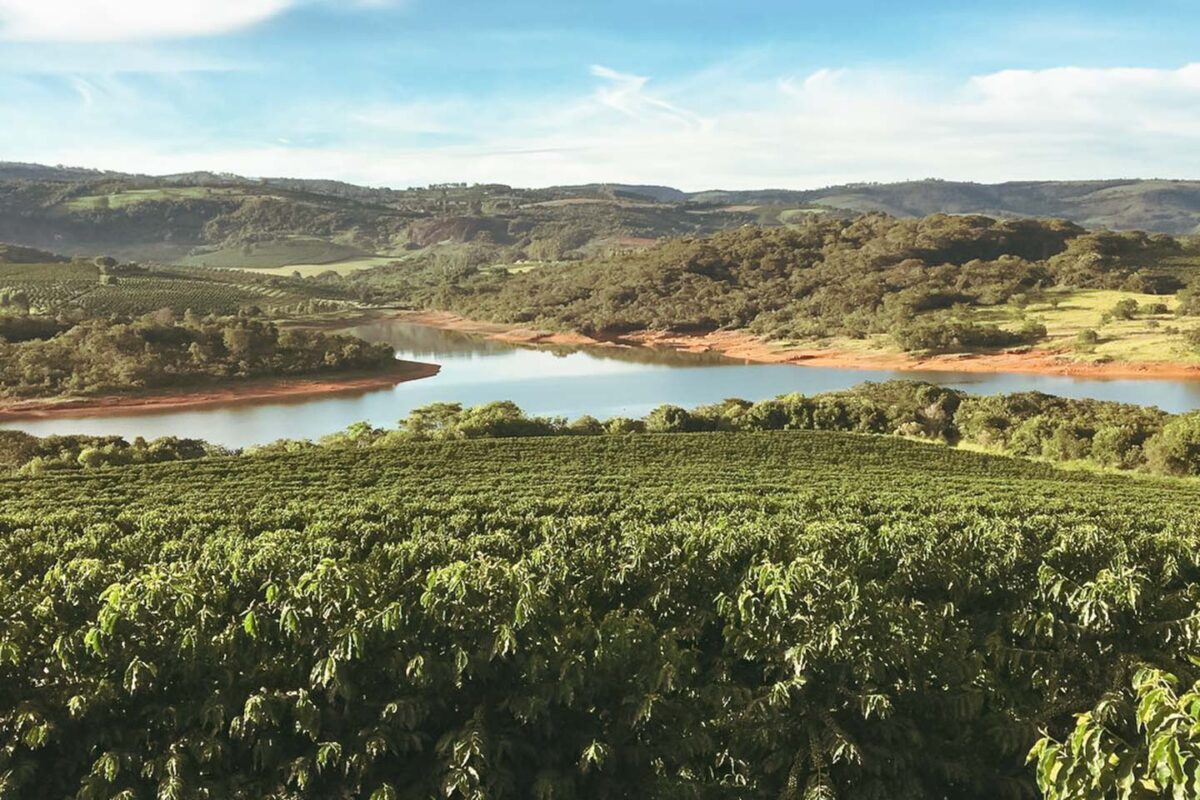
Direct trade is the only path forward
Brazil is the world’s largest coffee producer, with a history of coffee production spanning around 300 years. To support the domestic industry, the country bans the import of green beans. While roasted beans can be imported, they are subject to an approximately 100% tariff, making it nearly impossible to compete with domestically grown coffee. This is why specialty coffee is scarce in Brazil.
But that may soon change, as more and more producers are turning their attention to growing specialty coffee and shifting away from traditional focus on large-scale production. These producers believe in the untapped potential of Brazilian coffee and strive to bring it to the forefront, and Stefano is one such producer.
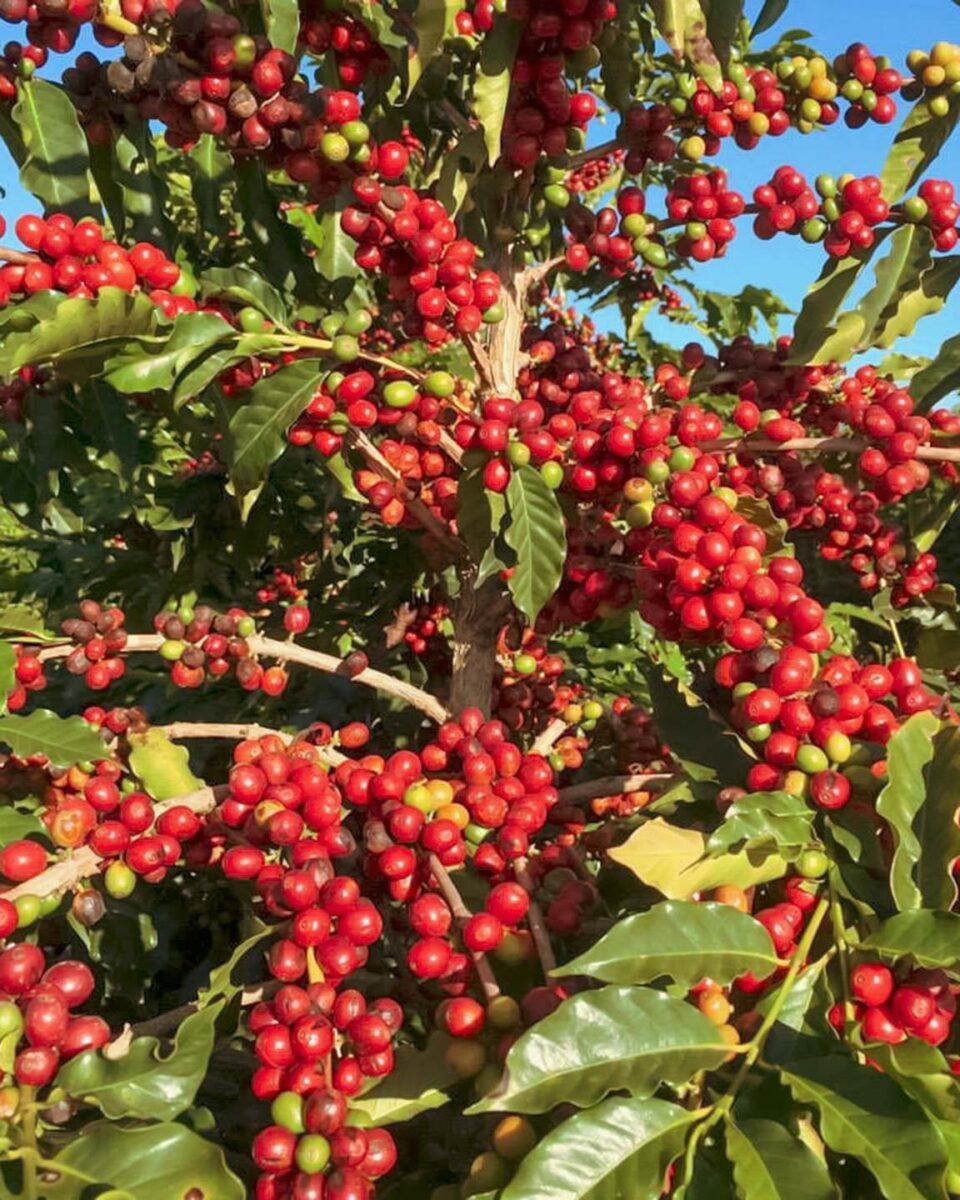
“When people think of Brazilian coffee, they usually think of Mojiana and Cerrado. But Brazil is a huge country and it’s like there are a whole bunch of countries inside of one. According to Brazil’s specialty coffee association, Brazil has 33 distinct terroirs. So it’s like having the terroirs of Colombia, Guatemala and Kenya all in one place. It’s really amazing and it makes you realize how big Brazil is, and how much it has to offer.
But I personally think there are more than 33 terroirs in Brazil. Even some lesser-known regions in the north like Bahia and Caparao produce some specialty coffee. But the volumes are too low, so they’re often mixed with other coffees when they hit the market. That’s why they don’t get as much recognition.
There are a lot of coffee-producing regions out there. But if you ask me, none are as sweet as the coffees from Espirito Santo. The conditions there are just perfect for growing coffee, from volcanic soil to a cool climate that allows cherries to ripen slowly. And the flavors are really unique, with notes similar to Colombian and Guatemalan coffees. I think it’s the combination of high altitude and ample rainfall that makes all the difference.”
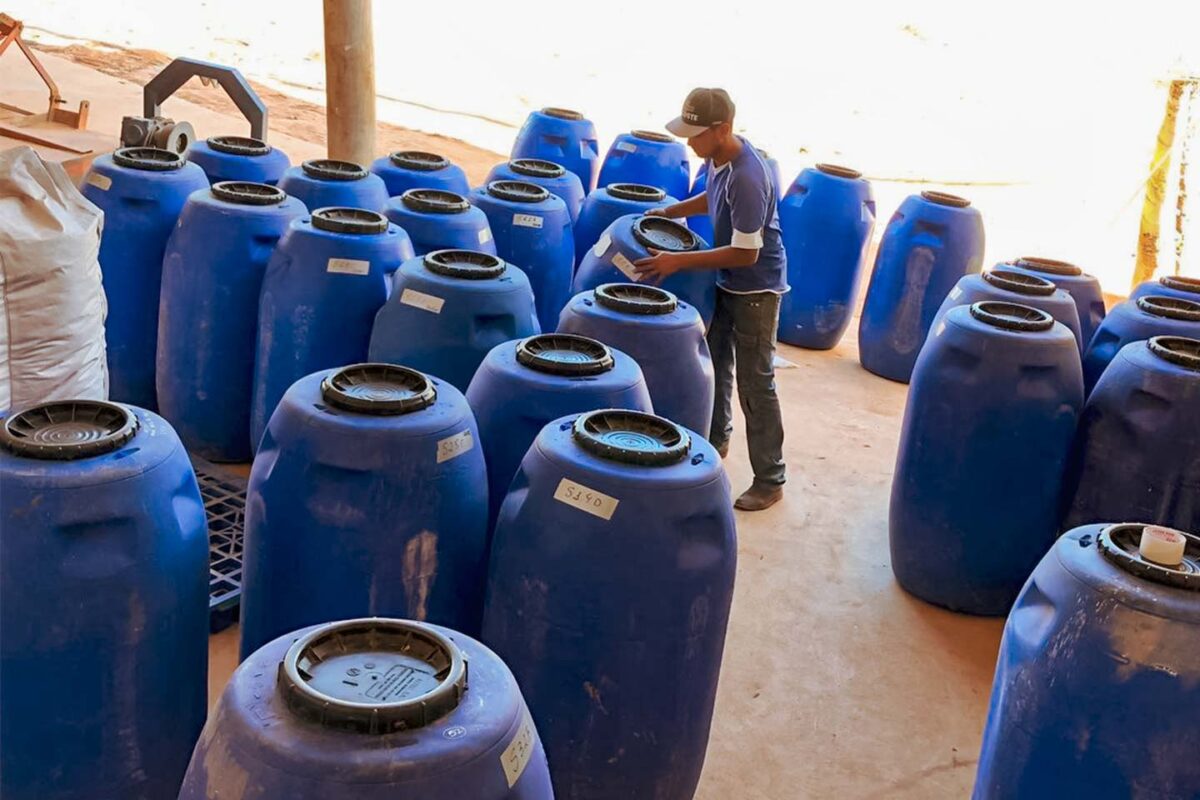
In the early days, Stefano was exporting large quantities of cheap, commodity coffee varieties, around 1,000 kilograms per month. However, as he became aware of the structural issues within the Brazilian coffee industry, he shifted towards specialty coffee.
“The government doesn’t do much to help small-scale coffee farmers. Even if they grow high-quality coffee, it can be tough for them to find buyers. Without a market, they have to sell it as a commodity to cooperatives for a fraction of its true value. And it’s no wonder that they don’t put in the same effort to improve quality the following year, when they don’t see any real benefit from it.
For small-scale farmers, selling to cooperatives can be a death sentence. Cooperatives always favor large-scale producers, and smallholders get the short end of the stick. For example, if small farmers can’t afford to buy fertilizer, they’re often forced to give away their coffee for free in exchange. This lack of fairness in the industry is the biggest problem facing Brazilian coffee.”

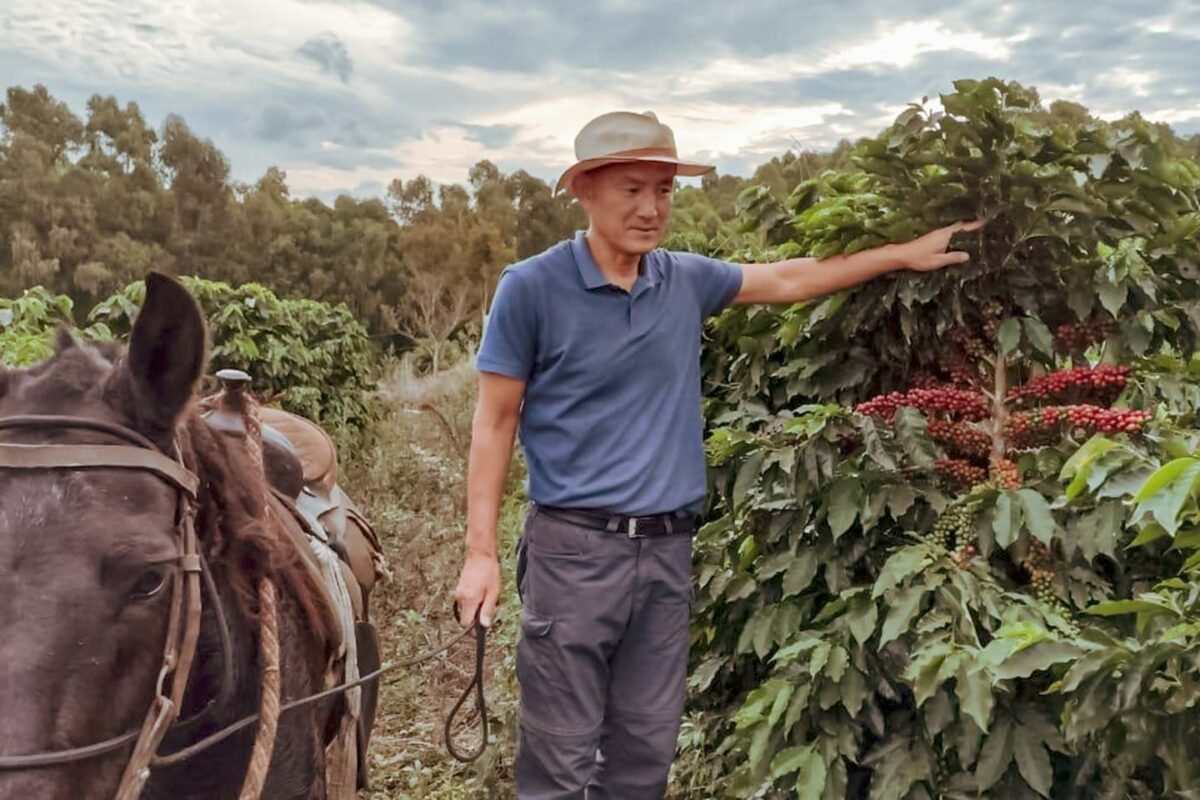
Fairness for better future
Soon after Stefano began growing coffee in Sul de Minas, he realized that Brazil was lacking the necessary resources to cultivate high-quality specialty coffee.
To set himself apart, Stefano decided to grow rare and exotic varieties that were less common in Brazil. He also spent 2 years, from 2001 to 2002, exploring all coffee-producing regions in the country. He traveled not only through the Amazon rainforest, but also ventured to remote towns in the north. After evaluating all potential locations, he ultimately concluded that Espirito Santo was the most suitable for growing specialty coffee.
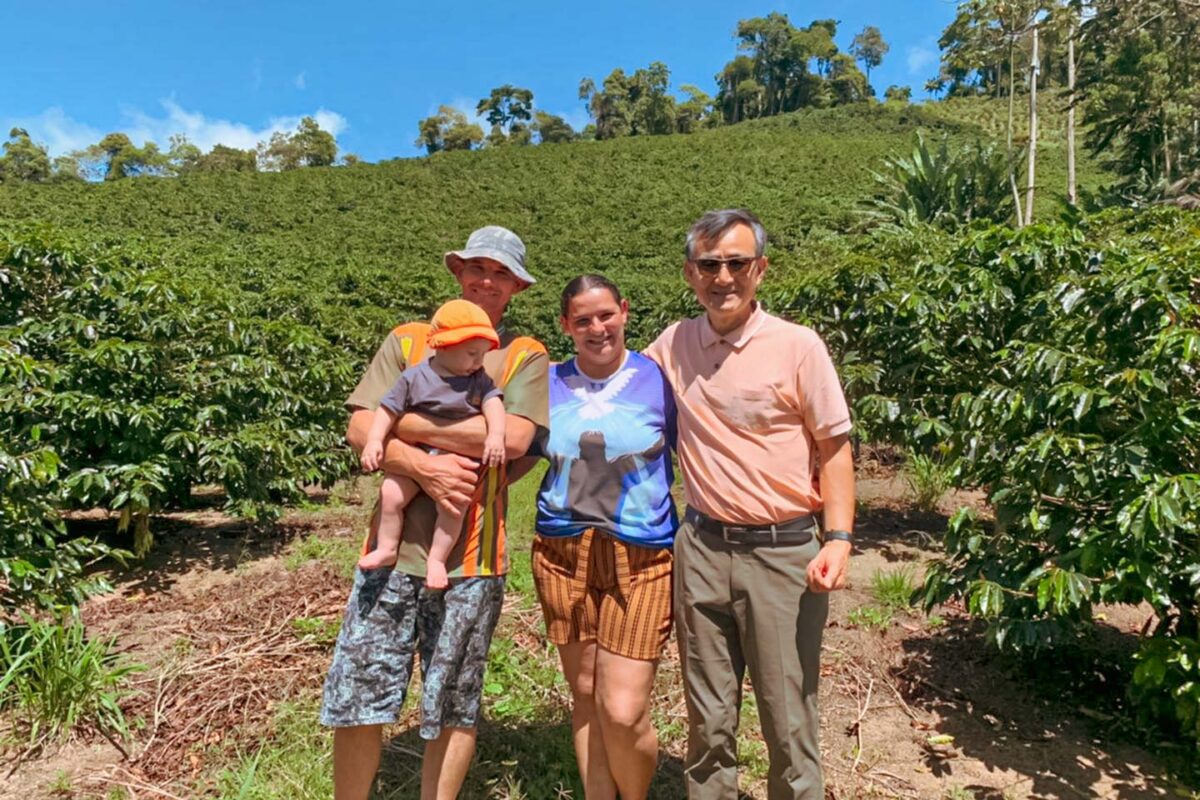
Currently, Um Coffee buys high-quality crops from small-holders in Espirito Santo for a price at least 50% higher than the market price, and sells them directly to clients. Many small-scale farmers lack access to machinery, so Stefano provides assistance with every task that requires the use of machines.
Many coffee producers in Brazil have limited education and may be illiterate. They often lack knowledge about the specific varieties they are growing or the qualities of their crops. Recognizing this, Stefano generously shares his expertise with other farmers. He provides tips on improving quality and evaluating flavors, teaches them how to use machines to remove the skin from coffee cherries, and explains the importance of controlling humidity with a dry bed. At the heart of all this support is his belief that knowledge is key to improving the quality of coffee.
“I’ve been working with small-scale farmers for the past five years and now, 28 smallholders sell their crops to Um Coffee. We’ve been seeing a growing number of requests from other farmers wanting to sell to us, as well. For these producers, having a consistent buyer for their coffee is incredibly motivating. It encourages them to improve the quality of their coffee year after year, which is what makes this work so fulfilling for me.”
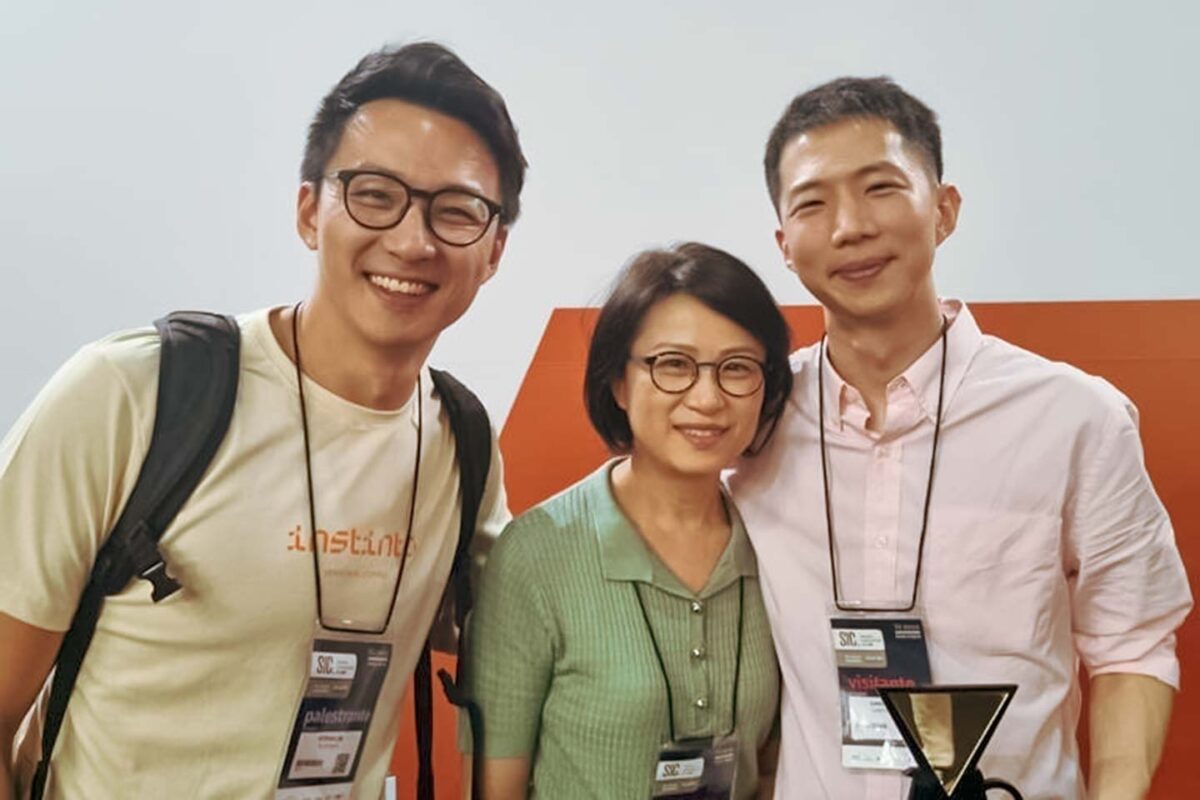
Stefano’s two sons are now also involved in Um Coffee, although he never pressured them to take over the business. Garam, the national brewer’s champion in 2023, and Boram, a two-time national barista champion in 2020 and 2022, both teach classes at Um Coffee’s academy, contributing to the growth and development of Brazil’s specialty coffee industry.

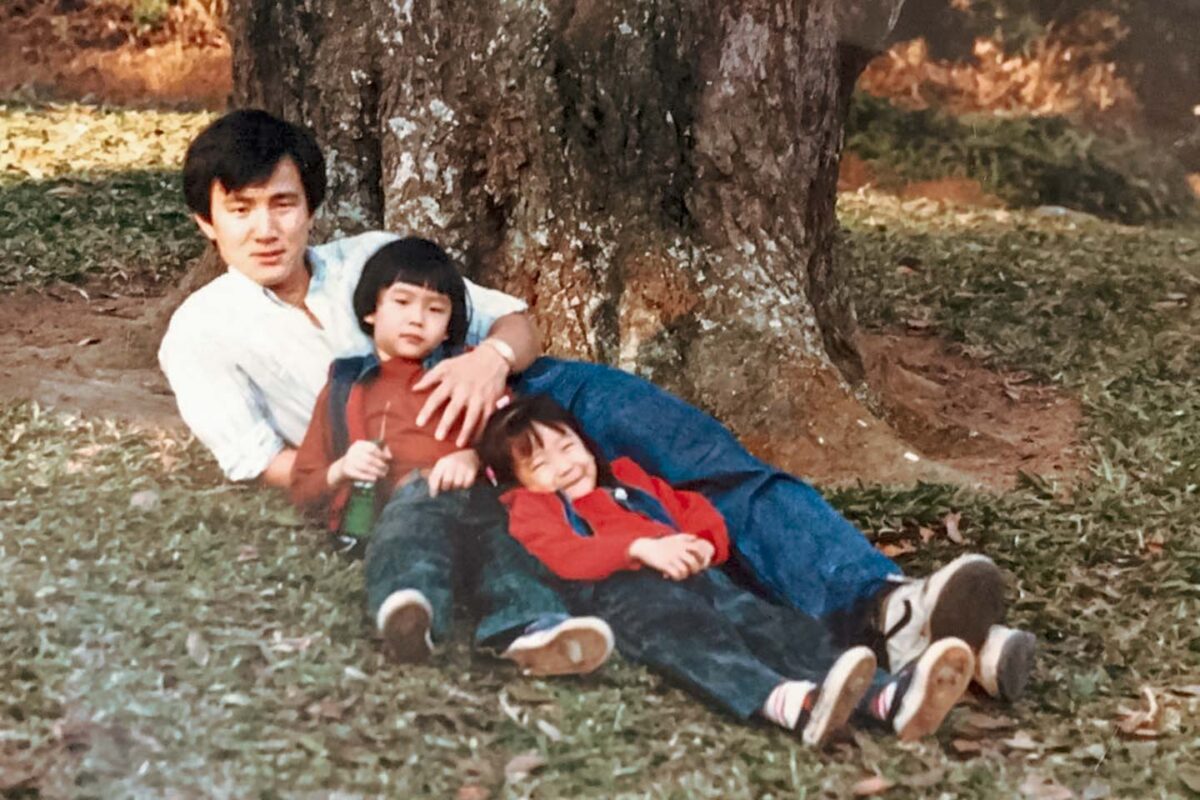
Making tangible impact
Stefano spent his childhood in a rural South Korean village surrounded by vast rice fields. His grandparents were rice farmers, and rows of rice paddies was a familiar sight that remains vividly on his mind to this day. Despite this background, Stefano was motivated to find a passion in something else, something he could be passionate about in his 40’s and 50’s, and something he could pass on to his children. It was this desire that led him to the world of coffee.
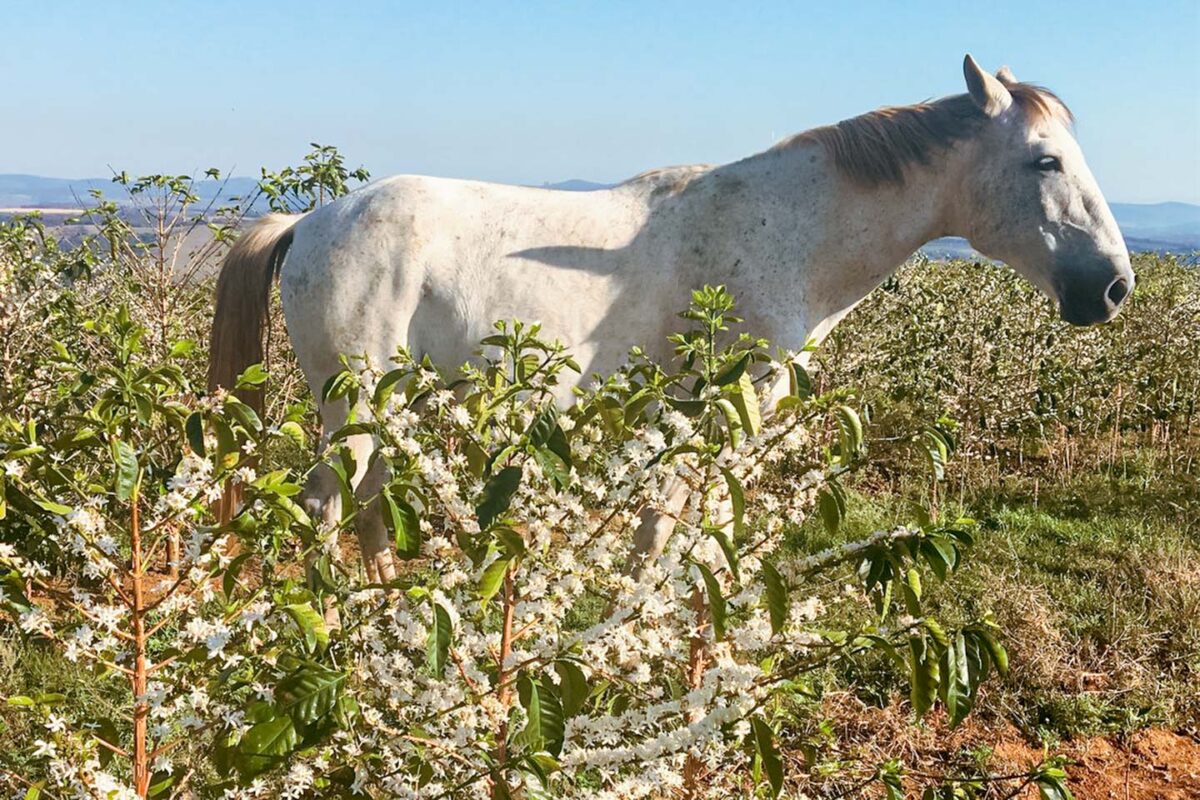
“For over a decade, I’ve been growing coffee and have learned through trial and error. It has been a journey of planting, nurturing, and sometimes losing coffee trees, but through it all, I’ve persevered. Every October, when the coffee trees on my farm begin to flower, I can’t help but feel overwhelmed with emotion. The bright white flowers are truly beautiful and they transform the farm into a snow-capped landscape, filled with the sweet aroma of jasmine. The flowers bloom all at once and only last for a week each year, but seeing them is a reminder of all the struggles I’ve overcome.
I’m not alone in my emotional response to the sight of coffee flowers. As farmers, we put in so much hard work and dedication to produce coffee, so when we see our efforts come to fruition, it is incredibly rewarding. I’ve seen families hug each other and cry tears of joy, or offer comfort to each other during difficult times. The sight of blooming flowers is a sign of the harvest to come, and it is a reminder that all the hard work will be worth it in the end.
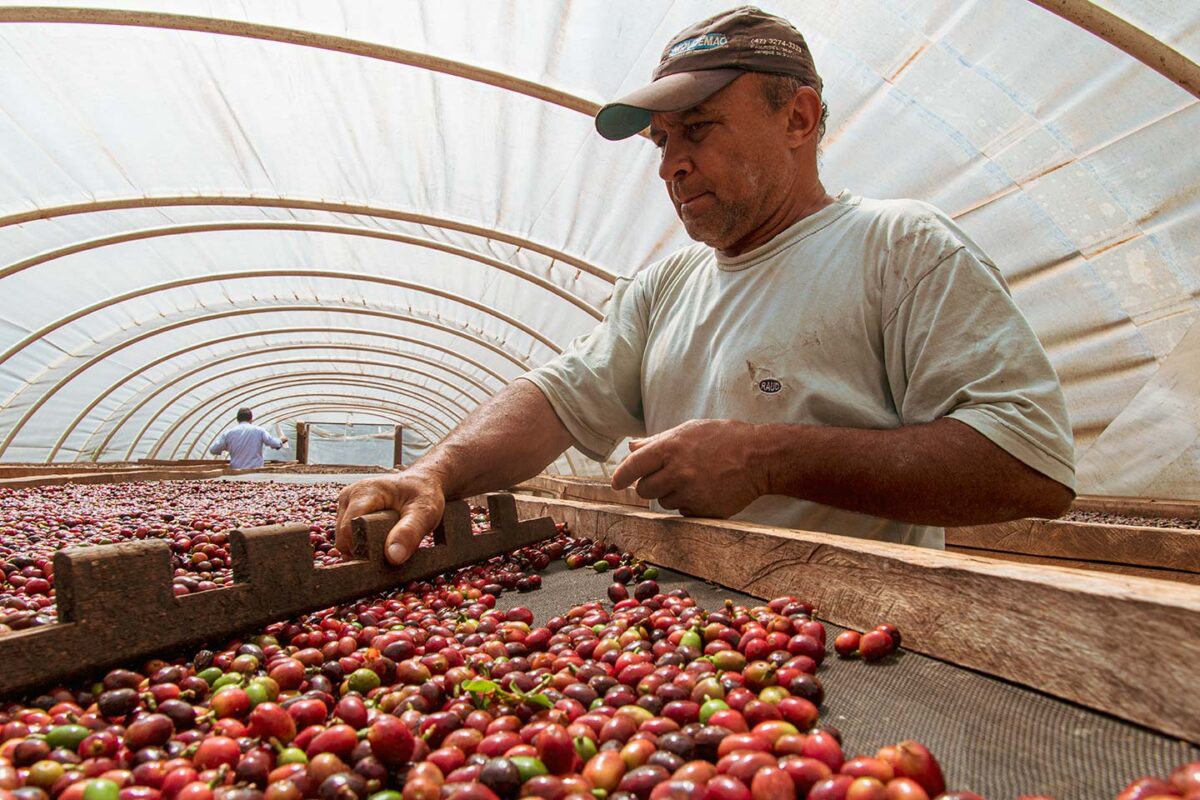
Just by looking at their calloused hands, I can see the struggles they’ve had to endure. Despite their hard work, they are often paid a low price for their coffee and forced to live in poverty. Without support, they’ll end up leaving their farms and seeking out new opportunities in bigger cities.
But there is hope. For the past four to five years, I have been exporting specialty coffee from Espirito Santo and have seen some small-scale producers begin to prosper. Some of them can now afford to invest in soil and machines. Nothing gives me more hope than the fact that they have grown this much. I’ll continue to work towards improving the livelihoods of coffee farming families in every way I can.”
Text: Tatsuya Nakamichi
